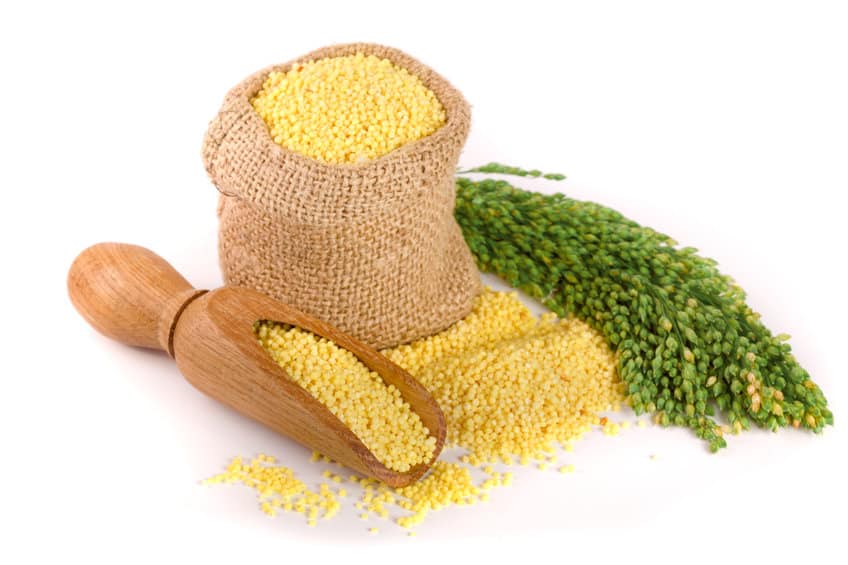The Skinny
Millet has been munched up by people for about 7,000 years, although that might be difficult to believe given it has only recently been “discovered” and embraced in the U.S. These small, round whole grains are considered an ancient power food, which was first produced in India, Nigeria and other African and Asian countries. While a grain, it is gluten-free and is loaded with protein, fiber and antioxidants. It can be served in lots of different ways, including as a substitute for rice, as a flour, a snack or even added directly to a range of dishes and salads. Not all millet is the same, however. That’s where WellWell comes in. We’ve broken down the basics for the top five millets. Read on.
The Slate
Finger Millet
Finger Millet is known as Ragi and is popular among those looking for a healthier alternative to rice or wheat. Ragi is rich in proteins and amino acids and is believed to support brain development in children. High in calcium, iron and other minerals, Ragi has a unique and rustic taste.
Kodo Millet
This is an easily digestible millet, which is heavy in lecithin for supporting nervous systems. It is also loaded with folic acid and B vitamins such as niacin, B6. Beyond this, Kodo delivers big dollops of benefits in the form of calcium, iron, potassium, magnesium and zinc. Some postmenopausal women consume it regularly to support heart health and lower high blood pressure and cholesterol levels.
Foxtail Millet
Foxtail prides itself on being a great source of iron and calcium, which makes it an immunity-boosting food. It works best as a substitute for white rice thanks to its mild taste and ability to absorb other flavors.
Pearl Millet
Pearl or Bajra is a powerhouse when it comes to iron content, holding eight times the amount of rice. It is also rich in protein, fiber and things like calcium and magnesium. Thanks to its high fiber content, this nutty tasty millet is a boon for anyone suffering from constipation or digestive problems.
Sorghum
Sorghum is one of the better-known millets, boasting plenty of nutritional benefits, such as vitamin B, magnesium and antioxidants, including flavonoids, phenolic acids and tannins. (Think figs.) All this makes sorghum, which has an earthy flavor, great at supporting metabolism, heart health and bones.
Eyes Up
What millet is in your pantry and why? Let us know at info@wellwellusa.com.
WellWell editors independently identify services and products of interest. If readers purchase anything through the associated links, WellWell may earn a commission, which goes to support our work. Learn More.













